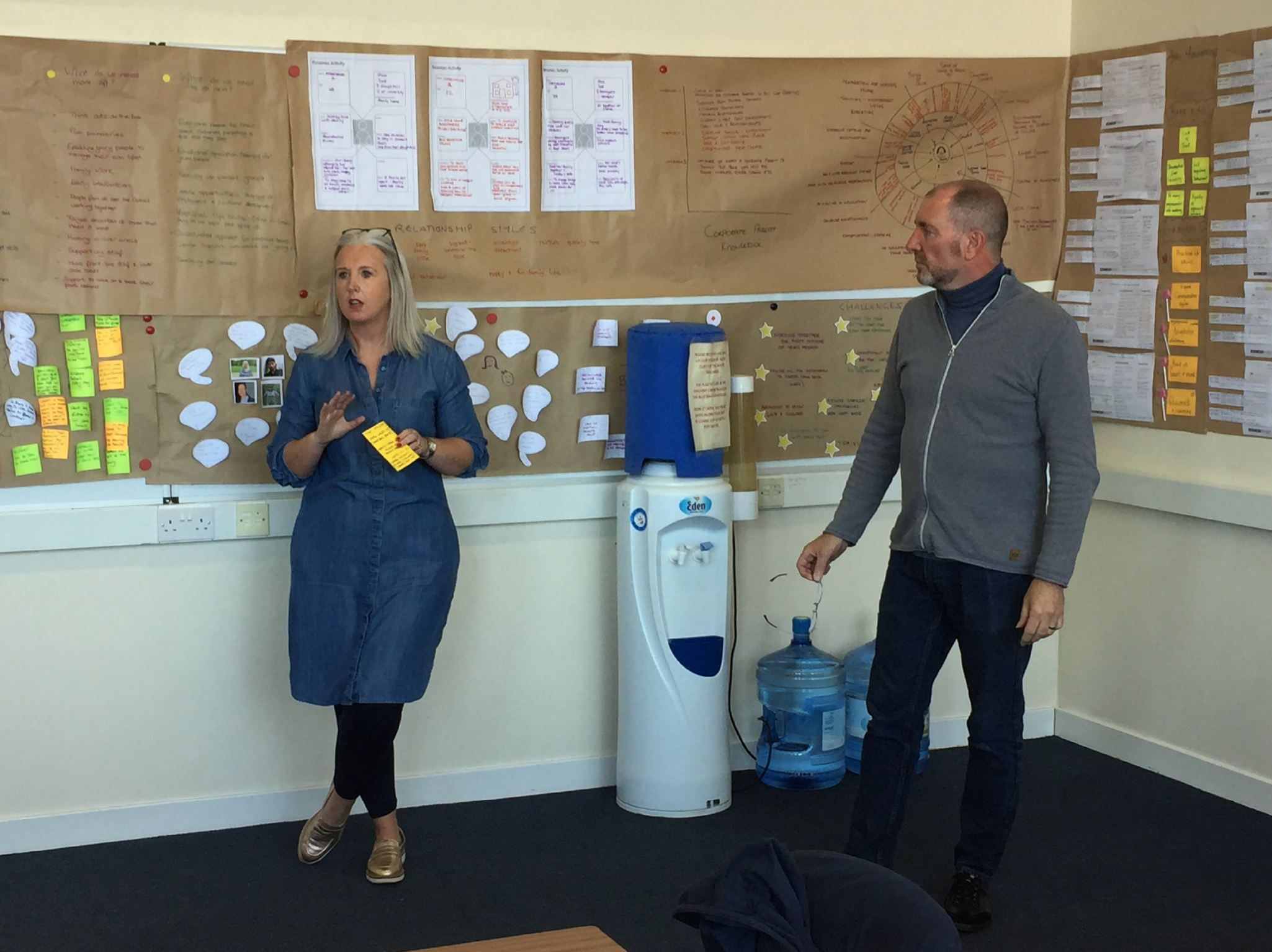Public Servant – Training and Research

The Public Servant Team
The Public Servant Team came together in August and October 2019 and worked together over 8 days. People in this team are from a range of services in Falkirk Council Corporate and Neighbourhood Services, Developmental services, Children’s Services and from Falkirk Community Trust.
Their job roles cover service such as residential care, monitoring and evaluation, family support, nursery and primary education, community estates, performance and information, policy, matching and software development. They have a range of knowledge and experience of young people’s experiences’ of leaving care. Everything from lived experience to no knowledge and are looking forward to learning more about what care leavers need more of.
Members of this team also have a range of skills and interests, from rock climbing, working as a driving instructor, therapists, coaches, first aiders, adoptive parents, having foster carers in their family, doing research to change policy in their spare time, and local scout leaders.
What made all of them suitable candidates to be part of this team is they were able to clearly show they cared about young people leaving care and were personable and sometimes vulnerable when members of the Citizen Team interviewed them. Ultimately they want to know what they and others can do more of to further improve young people’s experiences’ of leaving care in Falkirk.
Training
We created a bespoke training programme so the Public Servant Team could get to know one another and get ready to work with the Citizen Team.
Topics we covered included learning about:
1. The project,
2. Systems leadership,
3. Corporate parenting (delivered by Who Cares? Scotland)
4. Service design,
5. Developmental and attachment theory (delivered by Dr Laura Steckley from Starthcylde University),
6. Leaving Care workforce perspectives (delivery by Jenny Kane and the Leaving Care Team),
7. The development of Children’s Services in Falkirk Council (delivered by Cathy Megarry),
8. Interview training and analysis.

Learning about the project

General discussion about who we are thinking about when we use the term ‘workforce’

How Who Cares? Scotland describe Corporate Parenting

Chloe from Who Cares? Scotland leaving us with things to remember

Trying out a range of service design tools

Using service deisgn tools to share experiences’ of leaving home

Thinking about how the workforce need to behave to care for care leavers like they would their own children

Cathy Megarry’s provocative questions about what we are doing and why

Synthesised group sensemaking wall so team can discuss what they’re learing
Research
Interview Training
The public servant team were also trained in experience interview techniques and developed research questions for two groups of Falkirk Council staff people. The Children’s Service Manager (Cathy Megarry) reviewed the questions and offered suggestions.

Public Servants were buddied up to create five teams of two experience researchers and each research team interviewed 6 people (3 from group A and 3 from group B).
Both groups were invited through an open email invitation. The Project Co-Lead and Participation Lead made phone calls to people who have experience of caring for young people as they leave care in Falkirk. Each research team chose one of their services to focus on and recruited 3
colleagues (Corporate Parents).
Interviews lasted between 45 mins – 1 hr. Some researchers made notes and others audio recordings.




Analysing interview data
Analysis
1) Each research team discussed and identified themes from Group A and Group B. Some used service design tools (journey maps, experience maps) to visualise their findings. Other visualised their findings by creating posters.
2) Each research team presented their findings to the rest of the Public Servant team. Listeners were asked to make notes about key points/learning’s.
3) Evelyn Kennedy (Project Co-Lead) facilitated a discussion for the Public Servants to discuss the notes they made to explore the groups interpretations. Collective notes were made about key points/learning’s.
4) The Public Servant Team collated the enablers and barriers their data highlighted. This list was reviewed by Elisabeth Mcarthur (from the Leaving Care Team) and Janet Weir (the project Participation Lead).
5) After listening to the Public Servant Team present their findings Gayle (Project Co-Lead) created persona templates for Corporate Parents and invited the Public Servant team to flesh these out using the data they had gathered.





Each interview team presents their findings to the rest of the Public Servant Team

Evelyn supporting the Public servants make sense of thier findings as a group


The barriers and enablers taken from research data for the workforce when developing and maintaining relationshisp with young people as they leave care

Developing Corporate Parent personas and fleshing them out with research data

Public Servant Team pull their findings together and practice their presentation for the Citizen Team
At the end of each session we had reflection time so people could think about what they were learning. Each Public Servant was given a journal to write in. We also asked for feedback about each session to learn what was working for people and adapt things that could be improved.
This stage of the work closed by each Public Servant being interviewed by independent researcher Dr Catherine-Rose Stock-Rankin. More information about their views can be found in the Learning Review.